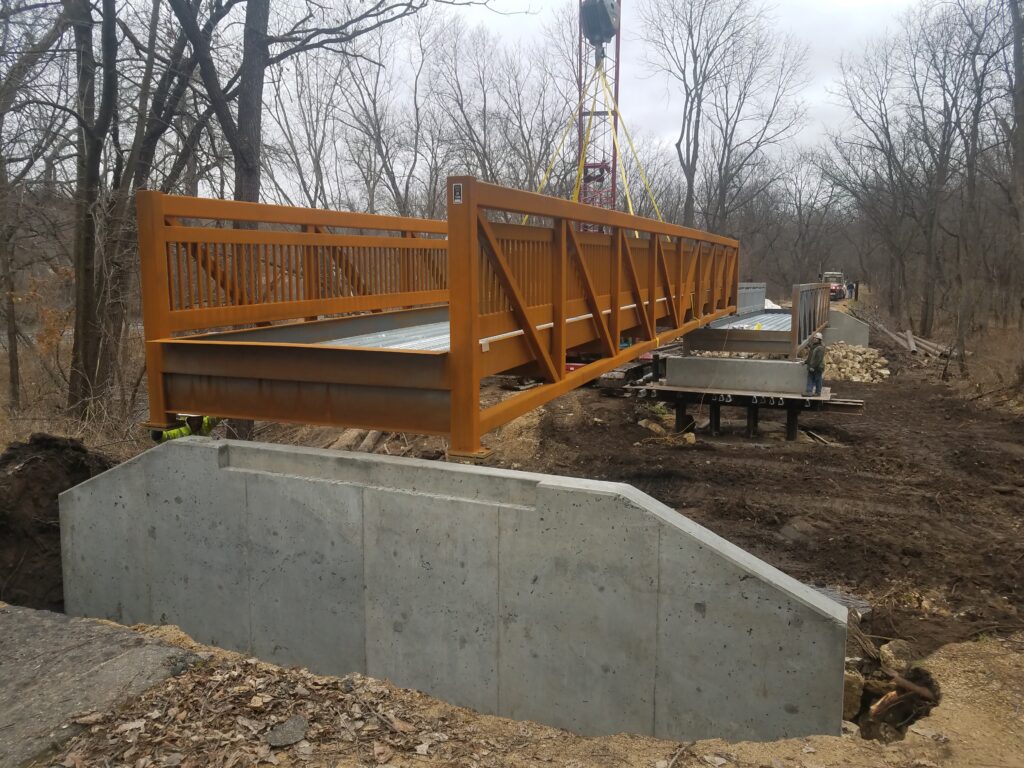
2019-2020 Bridge Replacement – $1.4 Million
This $1.4 Million project was made possible with the support of Greater Minnesota Regional Parks and Trails Commission (Minnesota Legacy Funds) and the CVT. Three bridges were replaced along the CVT at Mile 3.8 (Anderson Rest), Mile 5.5 and Mile 7.3 (High Bridge).
2019-2022 Prairie Restoration Project – $25,000
This project was funded by the MN DNR Conservation Partners Legacy Grant and focused on improving the quality of two sites that contained ecologically significant native prairie species. Both sites included Kitten-tails (Besseya bullii) (Minnesota Threatened) and needed natural management inputs. The specific needs included:
- Invigorating the resource through prescribed burning to reduce woody vegetation and thatch, promote seed germination, and native vegetation growth.
- Aggressive control of invasive species, primarily buckthorn and sumac, to stop further degradation of ecological quality.
- Addressing lower biodiversity of portions of the sites by interseeding native species to substantially improve overall ecological quality.
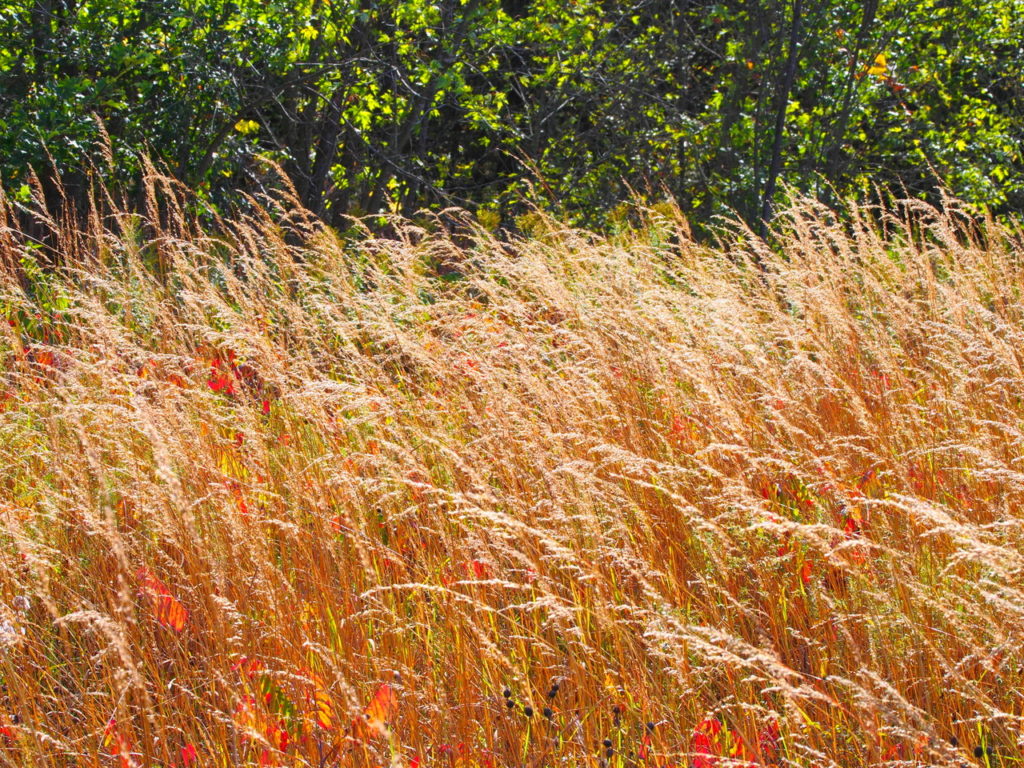
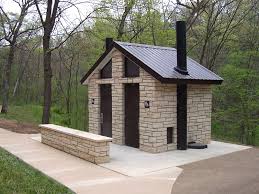
2021 Installation of Vault Toilets – $86,500
This project aimed to provide vault toilets at two locations (Anderson Rest Area and Cannon Bottom Road Access) which were previously served by portable units in the past. This provided a substantial improvement in service. The pre-fab type units, customized to fit the locations and the CVT design image, were used.
Project rationale – CVT had been in operation for 32 years and still relied, with one exception, on rented, portable toilet units to meet needs. The public had made it clear through extensive comments provided for the 2017 CVT Comprehensive Plan Update, that they expected improvements and the construction of two vault toilets were high and medium priorities in the Comprehensive Plan Update capital improvement plan. Funding for this project was provided by Greater Minnesota Regional Parks and Trails Commission (Minnesota Legacy Funds) and the CVT.
2021 Signage Project – $30,200
This project was funded by the Greater Minnesota Regional Parks and Trails Commission (Minnesota Legacy Funds) and the CVT. This project aimed to improve the trail visitor experience through the development and implementation of comprehensive signage. Specifically, the project updated the existing Sign Plan, reduced wayfinding confusion by providing clarity to connecting trails, basic services, and significant community amenities; promoted economic and cultural interaction with the host communities; addressed shortcomings in safety/regulatory messaging; invigorated the Cannon Valley Trail ‘brand’; and replaced deteriorated signs.
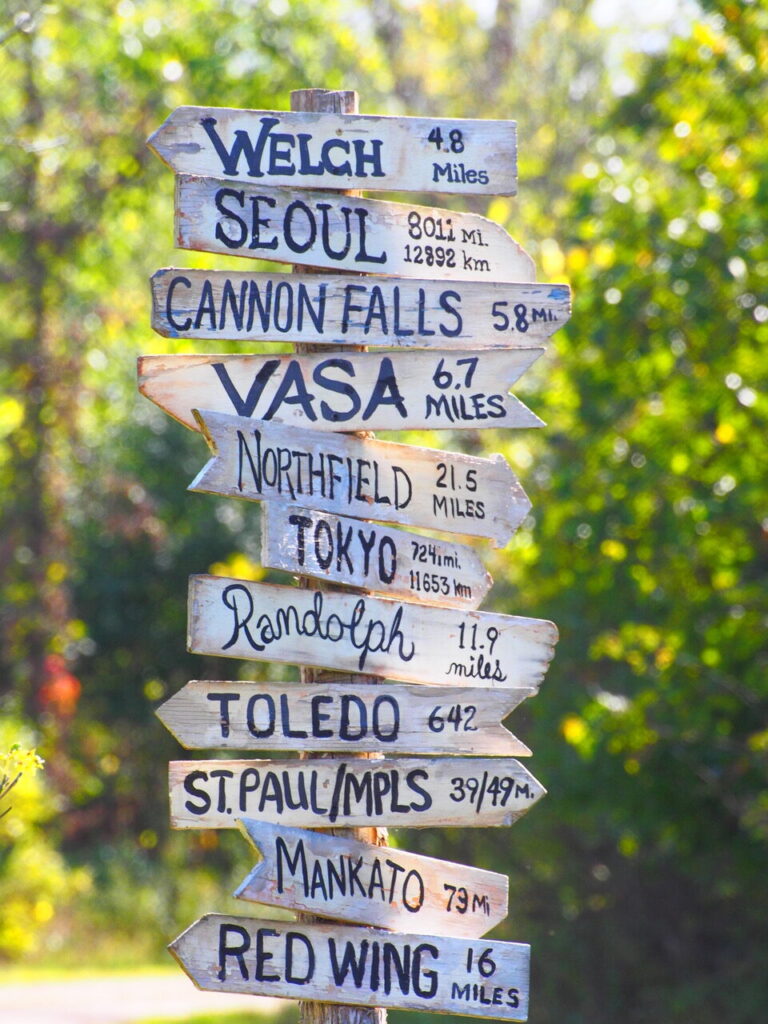
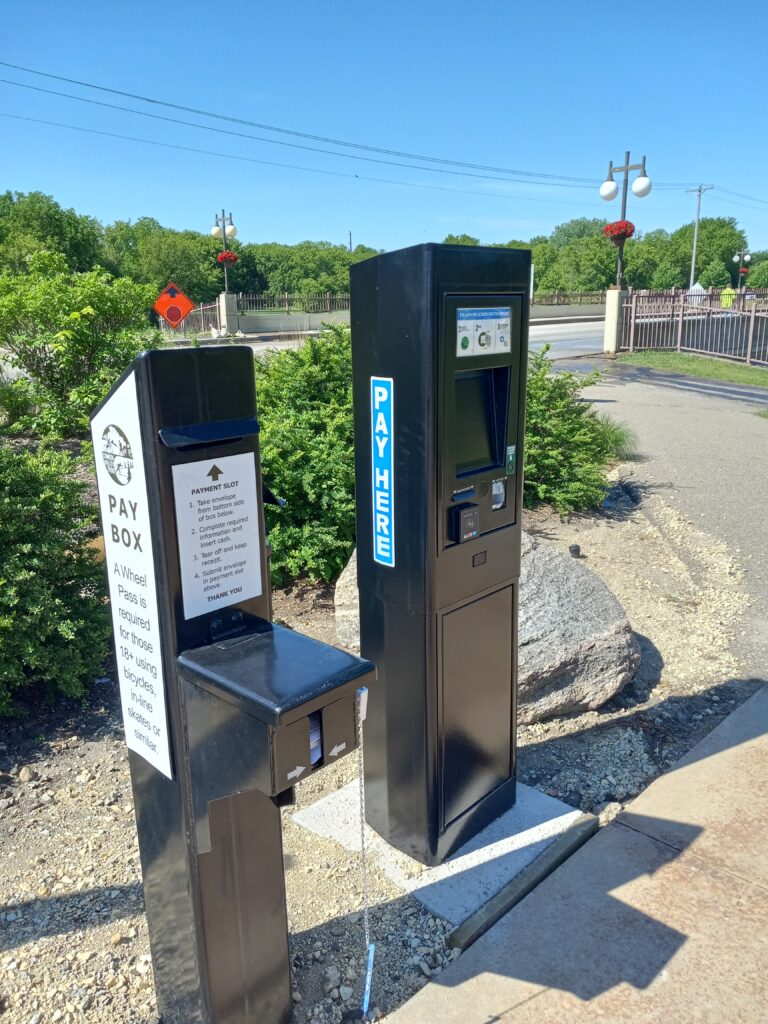
2021 Electronic Pay Stations – $15,000
The lack of an electronic payment option at the self-purchase stations was a glaring service delivery shortcoming. Much of the public has transitioned to, and expected, electronic payment options, such as credit cards and cell phone mobile apps (e.g., Apple Pay, Google Pay). Not providing that service at the self-purchase stations resulted in less voluntary compliance and frustrated users. The industry now provides proven and effective electronic pay stations that are increasingly being used at other park destinations..
Electronic pay stations also offered a real-time opportunity to provide updated information to users via the station screens. From a remote location, staff could program the machines to communicate up-to-date information such as trail closures or special programming offered along the Trail that day.
This project was funded by the Greater Minnesota Regional Parks and Trails Commission (Minnesota Legacy Funds) and the CVT.
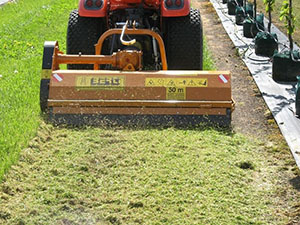
2021 Tractor Mower – $10,400
This project was funded by the Federal Recreational Trail Equipment Grant Program and the CVT. With this grant the CVT purchased an articulating flail mower which makes it possible to mow uneven shoulders safely.
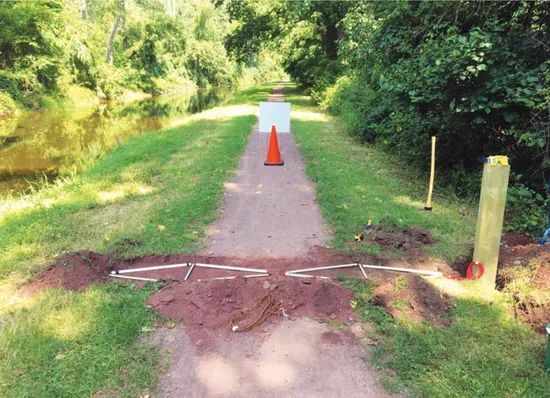
2021 Trail Use Counters – $10,745
Each year, the CVT hosts an estimated 100,000 people who visit the trail to hike, bike, inline skate and/or cross country ski. A Federal Recreational Trail Grant enabled the CVT to purchase two multi-directional use counters and accessories. Counting pedestrians and cyclists allows decision makers to determine trends in trail and facility usage. Insight into trail and facility usage can be used to customize planning and maintenance to the most frequent mode of recreation and peak traffic hours.
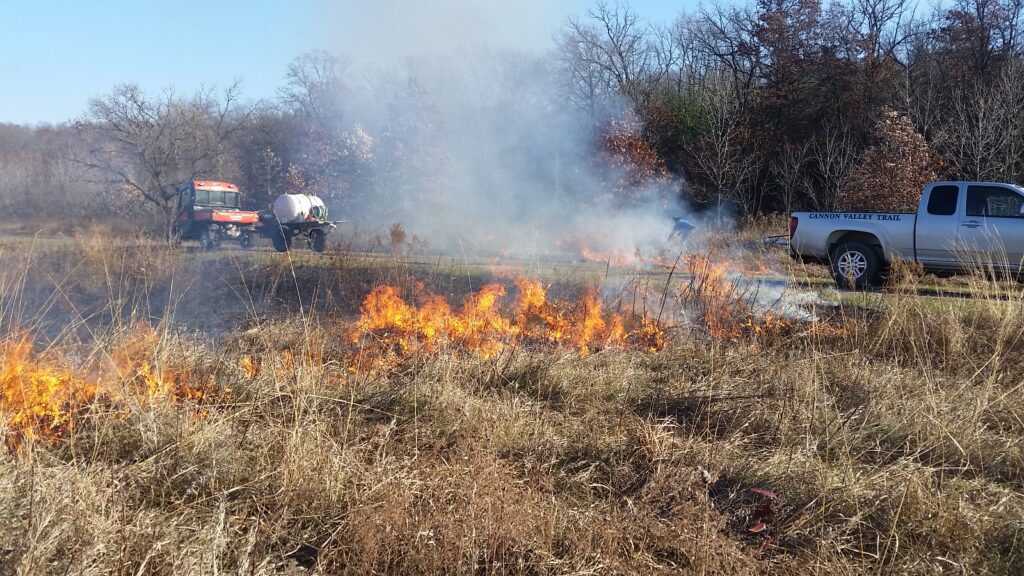
2022 Biological Resources Management Plan Update Project – $33,240
The Cannon Valley Trail has demonstrated a commitment to natural resource stewardship since 1986 when the trail was established, undertaking various management projects guided by a 1988 Biological Resources Management Plan. This plan, based on a comprehensive biological survey, emphasized the CVT’s biodiversity, conservation potential, and educational value, identifying rare species and remnant prairies.
However, the 34-year-old plan became outdated due to new property acquisitions and discoveries like the federally endangered Minnesota Dwarf Trout Lily and a potential fen. Therefore, an updated management plan is crucial for continued stewardship and quality recreation.
The JPB partnered with the Wings Foundation (Red Wing) and the Red Wing Area Fund to fund this update through a cost-sharing agreement. Contributions were as follows: Joint Powers Board, $8,310 (25%); Wings Foundation, $10,000 (30%); and Red Wing Area Fund, $14,958 (45%).
2022-2023 Phase 2 Bridge Replacement – $996,400
The Cannon Valley Trail Bridge Replacement Phase 2 Project aimed to replace four degraded existing 100-plus-year-old railroad-era timber bridges with one steel truss bridge and three concrete box culverts. These bridges were selected for replacement based on the recommendations of a 2017 Feasibility Report (bridge engineering analysis) due to deteriorated condition and/or inadequate hydrologic capacity, which resulted in significant trail damage during water runoff events. The bridge replacement locations were at Miles: 10.5, 11.25, 13.5 and 15.5. This project was funded by the Greater Minnesota Regional Parks and Trails Commission (Minnesota Legacy Funds) and the CVT.
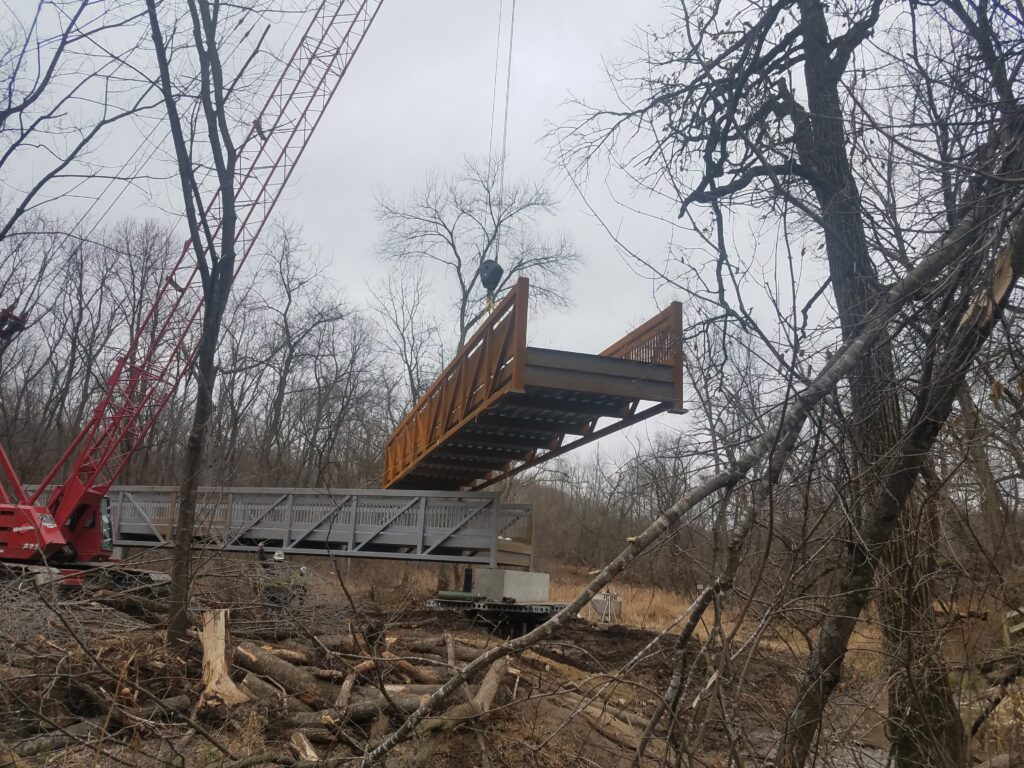
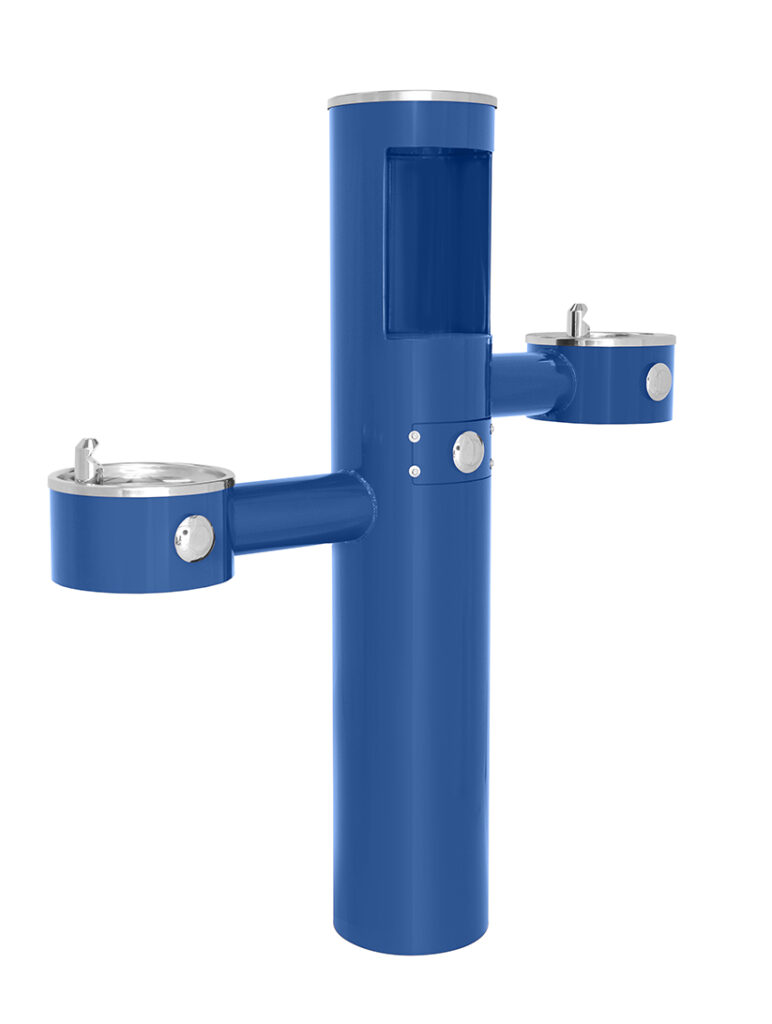
2023 ADA Accessible Drinking Fountain/Bottle Filler – $5,000
Welch Station Access was in need of a new water fountain. CVT applied and received a Live Well Goodhue County Community Partner Award to install an ADA-accessible water fountain with a water bottle filler. This water station is used by trail users to refresh after a ride or to refill their water bottles for drinking along the trail.
Future Trail Improvements
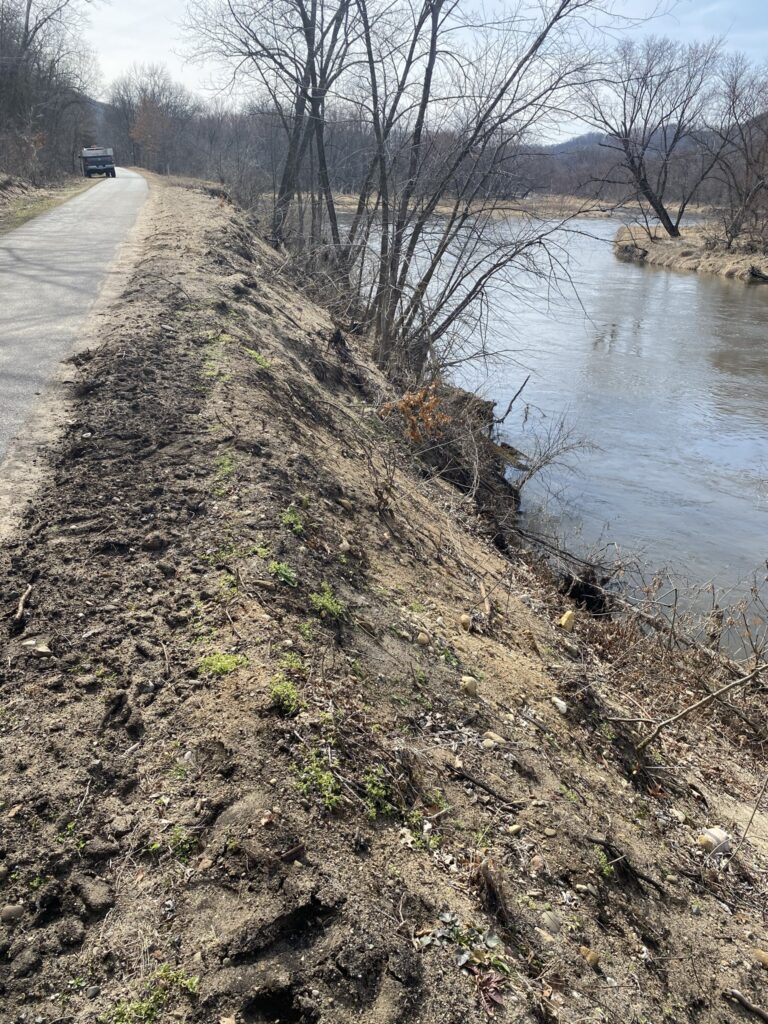
2024 – 2027 Mile 14 and 16 Slope Failure Repair Project – $2,173,000
The Mile 14 and 16 Slope Repair Project will rebuild 1,200 feet of the Cannon Valley Trail and adjacent slopes at two sites to prevent trail slippage. Construction will begin in the fall of 2025. This project is currently being funded by the Greater Minnesota Regional Parks and Trails Commission (Minnesota Legacy Funds) and the CVT.
2024 -2027 Bridge and Trail Surface Replacement Project – $2,300,000
The Cannon Valley Trail Bridge and Trail Surface Replacement Project has three major components. First, the project will replace Bridge R0497, a deteriorated 100-plus-year-old wooden structure, with a new steel truss bridge. Second, 4.2 miles of the poorest quality 8-foot wide bituminous surface (Miles 15.5 to 19.7) will be replaced with a new 10-foot wide surface. This section will also include the construction of two sediment control structures to prevent sediment from adjacent ravines from depositing on the new surface. This project is currently being funded by the Greater Minnesota Regional Parks and Trails Commission (Minnesota Legacy Funds) and the CVT. Construction will begin in the fall of 2025.
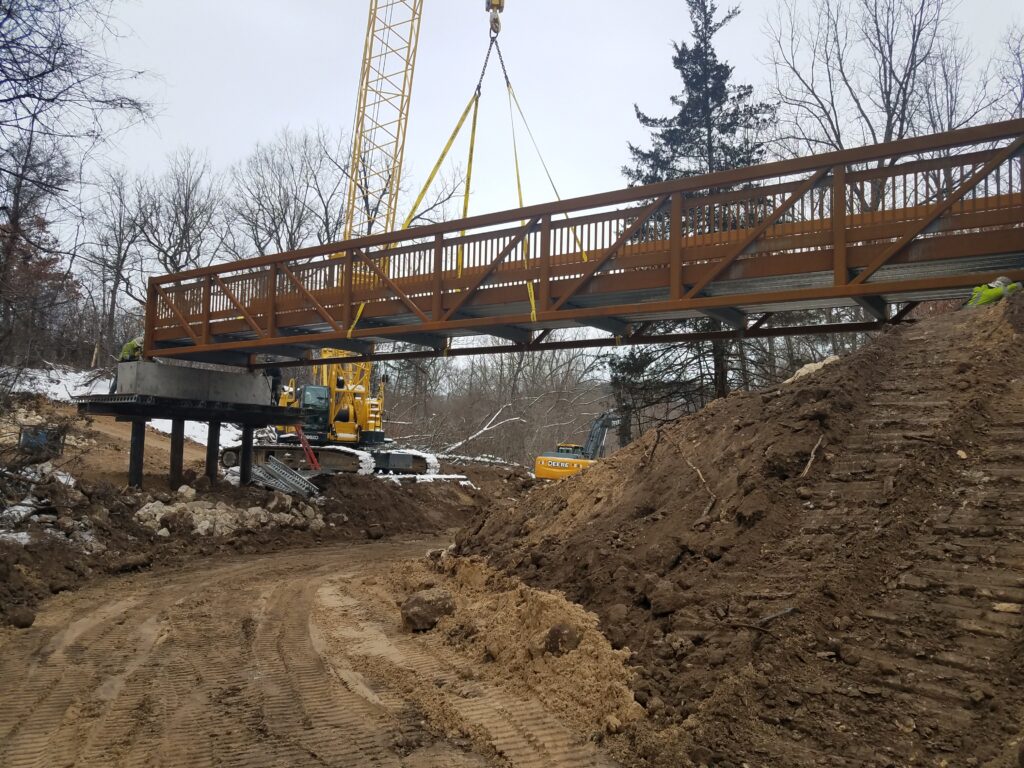

2025 Research for a History of the Cannon Valley Trail – $10,000
This project comprises the research phase for writing and publishing a history of the Cannon Valley Trail, a 19.7-mile multipurpose recreational rail trail, which is celebrating its 40th anniversary in May 2026. This history is a part of the fascinating tale of the national rails-to-trails movement. This project is funded by the Minnesota Historical and Cultural Heritage Program (Minnesota Legacy Funds).
